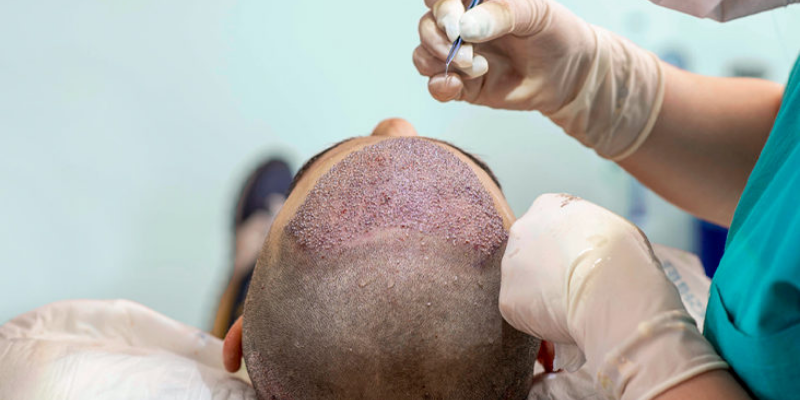How Long After Hair Transplant To Go Out In Public?
How long after hair transplant to go out in public? Sometimes, hair restoration is done while the person is very sleepy. If you were given something to make you sleepy, don’t drive for the next 24 hours. Make sure you have a ride to and from your appointment.
For the first seven days after treatment, you must sleep with your head raised so that you don’t swell up too much. Some clients find that they only need to sleep with their head up for a few days. But remember that not everyone gets swelling after getting hair implants. If you don’t feel a little pressure around your forehead, there’s no reason why you shouldn’t be able to sleep as usual.
How Long After Hair Transplant To Go Out In Public Alone?
If you have just a little bit of swelling, we suggest turning your recliner into a temporary bed. Even though it’s not ideal, some people find that sleeping in their recliners is much more comfortable than on four pillows. Try to keep your head 45 degrees above your heart.
Not reading the labels on your prescription and over-the-counter medicines is one of the worst things you can do after getting a hair transplant. To reduce the chance of getting an infection, antibiotics should be taken exactly as the doctor tells you to. Also, you shouldn’t drive after taking analgesics if the warning label says you shouldn’t use heavy machinery or equipment. You should also make sure you are not taking too much of any medicine. Lastly, take your medicine with food if the package says to. Some medicines, especially painkillers, can upset your stomach if you take them on an empty stomach.
How Long After Hair Transplant To Wash Your Hair?
Don’t wash your hair for the first 48 hours after getting a hair transplant. After the treatment, you can gently wash your hair on the third day. Through the fifth day after treatment, don’t wash your hair too much. Also, don’t aim the stream straight at your head. Use a cup instead to get the shampoo out of your hair. If you have an itchy scalp, you can gently put conditioner on it.
How long after hair transplant to go out in public? You can’t dye your hair for four weeks after getting your hair back. If you don’t think you can go four weeks without coloring your hair, do it right before your treatment. There are no bad side effects to dying your hair right before a hair transplant, but the harsh chemicals in hair dye can hurt the success of the transplanted hair follicles afterward. After the transplant, the transplanted follicles are in a very fragile state for a few weeks. They need as much care as possible.
Hair Transplant Aftercare
We all know that water is important for life, but not everyone knows that staying hydrated before and after a transplant is even more important. The more water you drink, the better you’ll feel and the faster you’ll get better. Spending a couple of weeks trying to drink 10 percent more water can make a huge difference in how quickly you get better. We recommend that you download an app on your phone that will remind you to drink a cup (8 fl. oz.) of water every hour that you are awake. This will make sure you drink enough water.
As a general rule, you should drink as much water as your body weight in ounces. If you weigh 120 pounds, for example, you should drink 60 ounces (7.5 cups) of water every day. This doesn’t work perfectly in every case, though. Check your urine to see if you’re getting enough water. It should be clear or a very pale yellow color.
Don’t Lye On Your Back
Many people don’t think that their hair will fall out after a hair transplant, but this is a normal, healthy part of the hair growth cycle. At any given time, about 10% to 15% of your hair is in the “shedding” phase. Don’t worry if you lose hair in the first two to four weeks after your treatment. Your hair follicles are not hurt. In three months, stronger, healthier, and thicker hair will have grown out of those follicles.
A lot of people sleep on their stomachs or move around in their sleep. But you have to be careful not to sleep on your stomach or side for the first week after your treatment. Don’t scratch your new hairline by rubbing it against your pillow. If you can’t stop tossing and turning at night, buy a weighted blanket or sleep in a recliner. It’s a small thing to give up, but it makes sure that your treatment doesn’t fail.
Avoid Drinking and Smoking
Since alcohol is a diuretic, it will make you lose water. This can make your recovery take longer and make you more likely to be in pain. It can also raise your blood pressure to a dangerous level and cut off blood and other important nutrients to your head. For the first five days after your procedure, don’t drink alcohol.
If you smoke, try to stop at least a few months before your transplant. It’s hard to quit, and it also raises your blood pressure. Depending on how high your blood pressure is already, smoking could make it go up to a dangerous level. Remember that new, healthy hair can’t grow without blood flow. For the first 31 days after your treatment, don’t use nicotine products like e-liquids, cigarettes, cigars, nicotine gum, or nicotine patches.
Avoid Having Sex
You won’t be able to have sex for the first week after getting a hair transplant. People often say that sex lowers blood pressure. While it’s true that having sex regularly can help lower blood pressure over time, your blood pressure and heart rate always go up during sex. There is a very good chance that your heart rate, blood pressure, or both will get too high for the health of your transplants. Also, there is a chance that you will sweat and touch the treatment site when you are having sexual relations. This can stop healthy scabs from forming and make it more likely that an infection will happen.
How Long After Bariatric Surgery Can You Have Caffeine as a Coffee Drinker?
As someone who enjoys coffee, you may have wondered if it is safe to consume caffeine after having bariatric surgery. The answer to the question “how long after bariatric surgery can you have caffeine?” is with restrictions, after waiting for at least three months. This is because the surgery reduces the amount of stomach acid that is produced, which can affect the absorption of certain compounds found in coffee. In answering, “can you drink fizzy drinks after gastric sleeve or any other bariatric surgery?” you should also avoid any other high-caffeine beverages such as energy drinks and soda. When you do start drinking coffee again, it is important to do so in moderation. Caffeine can cause dehydration and increase your risk of developing kidney stones, so it’s best to limit your intake of coffee to no more than two cups per day. It’s also essential to avoid adding any sugar or artificial sweeteners to your coffee since these can cause problems like gas and bloating. Additionally, be sure to drink plenty of water throughout the day to help keep you hydrated and reduce the chances of developing any complications. We hope this article answers “how long after bariatric surgery can you have caffeine?”




